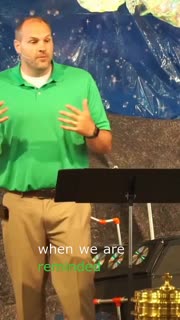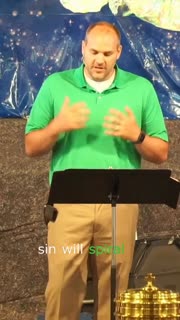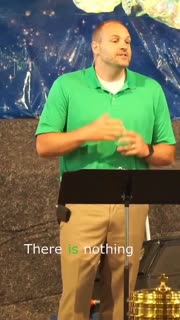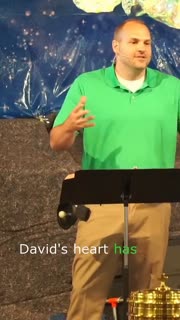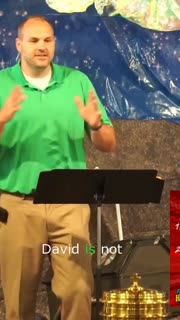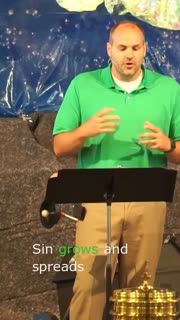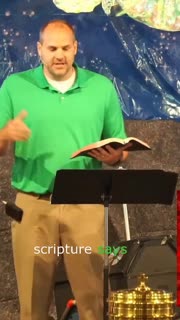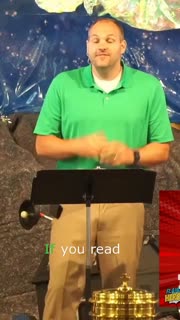David: A Journey from Sin to Redemption
Devotional
Sermon Summary
Bible Study Guide
Sermon Clips
### Quotes for Outreach
1. "When we are reminded that even these heroes have flaws, it makes them much more human. It makes it feel much more like we can always, also be heroes in our own story, faithfully living in the situation that God has put each one of us into." [01:38]
2. "Sin will spiral out of control in your life if left unchecked. Right? That's what we saw. David let this small thing of sloth allow him to be in a place and a time where he shouldn't have been that led to a look, led him to linger on the gaze, led him to lust, to inquire about who the woman was, to bring her to him, to sleep with her." [18:53]
3. "There is nothing too grievous that you can do that God will never forgive. He bled and died in your place on the cross, and if you want forgiveness for your sins, all you have to do is follow David's pattern. Confess your sins. Trust that what Jesus did on the cross, on Calvary 2,000 years ago, is ultimately what cleanses us today of our sin." [31:50]
4. "Maybe there are some of you in this room who have never accepted forgiveness for your sins. You've never said to God, God, I've made a mess. Like David, I've done some really bad things. I've seen sin spiral in my life. And if that's you, and you've seen that mess, and you don't know how to get out of that mess, I'm telling you today, there's forgiveness in Jesus." [33:00]
5. "We can't just stay in our sin and say, well, God will forgive me. That's who I am. We have to repent. We have to turn, and we have to say, God, I was wrong. 1 John 1.9 says, if we confess our sins, he, God, is faithful and just and will forgive us our sins and purify us from all unrighteousness." [31:50]
### Quotes for Members
1. "David's heart has gone after this woman. And so this woman, and we have to remember this lust in this moment wouldn't have happened had he gone off to war with his men. So what we see is the one small sin of sloth has now led to lust. But it continues." [08:29]
2. "David is not the hero we see in this story. Uriah is the hero. David's trying to do everything to say, go be with your wife. And he's saying, no, I'm not going to. All that David's throwing at him, it's not seeming to work. David is coming across as the villain here. He's trying to push and nudge and move and make other people do exactly what he wants for his own intentions." [15:56]
3. "Sin grows and spreads and ultimately it takes over our lives. Ultimately, we can become people we don't even recognize making choices that we couldn't have even imagined ourselves making. Maybe you've had that experience. You've watched a friend who starts making decisions and you're like, I don't even recognize you anymore. You used to be this way. What has happened?" [21:06]
4. "Scripture says David is a man after God's own heart not because he was perfect, not because his heart was always pure, but because that's what he was seeking. That's what he was after. And that's available to each one of us. None of us, have a pure, perfect heart like God's. But we can be seeking to have a pure and perfect heart like God's." [29:47]
5. "If you read the story of David all the way up to this chapter and then you read chapter 11 by itself, they don't seem to fit. The David of all the stories that go before this do not at all look like the villain here who has had Uriah killed. And he doesn't even recognize any of it as sin. He thinks that he's gotten away with it. Nobody saw it. And now he takes her as his wife. The problem is somebody always sees. God saw. God was displeased. And God was going to call him to account." [21:32]
Ask a question about this sermon
1. "When we are reminded that even these heroes have flaws, it makes them much more human. It makes it feel much more like we can always, also be heroes in our own story, faithfully living in the situation that God has put each one of us into." [01:38]
2. "Sin will spiral out of control in your life if left unchecked. Right? That's what we saw. David let this small thing of sloth allow him to be in a place and a time where he shouldn't have been that led to a look, led him to linger on the gaze, led him to lust, to inquire about who the woman was, to bring her to him, to sleep with her." [18:53]
3. "There is nothing too grievous that you can do that God will never forgive. He bled and died in your place on the cross, and if you want forgiveness for your sins, all you have to do is follow David's pattern. Confess your sins. Trust that what Jesus did on the cross, on Calvary 2,000 years ago, is ultimately what cleanses us today of our sin." [31:50]
4. "Maybe there are some of you in this room who have never accepted forgiveness for your sins. You've never said to God, God, I've made a mess. Like David, I've done some really bad things. I've seen sin spiral in my life. And if that's you, and you've seen that mess, and you don't know how to get out of that mess, I'm telling you today, there's forgiveness in Jesus." [33:00]
5. "We can't just stay in our sin and say, well, God will forgive me. That's who I am. We have to repent. We have to turn, and we have to say, God, I was wrong. 1 John 1.9 says, if we confess our sins, he, God, is faithful and just and will forgive us our sins and purify us from all unrighteousness." [31:50]
### Quotes for Members
1. "David's heart has gone after this woman. And so this woman, and we have to remember this lust in this moment wouldn't have happened had he gone off to war with his men. So what we see is the one small sin of sloth has now led to lust. But it continues." [08:29]
2. "David is not the hero we see in this story. Uriah is the hero. David's trying to do everything to say, go be with your wife. And he's saying, no, I'm not going to. All that David's throwing at him, it's not seeming to work. David is coming across as the villain here. He's trying to push and nudge and move and make other people do exactly what he wants for his own intentions." [15:56]
3. "Sin grows and spreads and ultimately it takes over our lives. Ultimately, we can become people we don't even recognize making choices that we couldn't have even imagined ourselves making. Maybe you've had that experience. You've watched a friend who starts making decisions and you're like, I don't even recognize you anymore. You used to be this way. What has happened?" [21:06]
4. "Scripture says David is a man after God's own heart not because he was perfect, not because his heart was always pure, but because that's what he was seeking. That's what he was after. And that's available to each one of us. None of us, have a pure, perfect heart like God's. But we can be seeking to have a pure and perfect heart like God's." [29:47]
5. "If you read the story of David all the way up to this chapter and then you read chapter 11 by itself, they don't seem to fit. The David of all the stories that go before this do not at all look like the villain here who has had Uriah killed. And he doesn't even recognize any of it as sin. He thinks that he's gotten away with it. Nobody saw it. And now he takes her as his wife. The problem is somebody always sees. God saw. God was displeased. And God was going to call him to account." [21:32]
